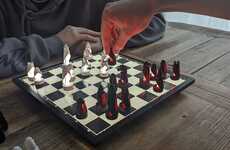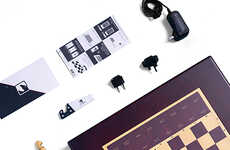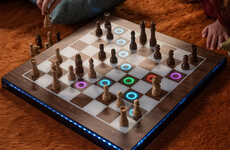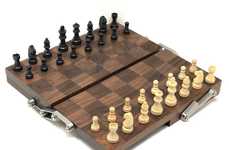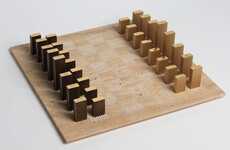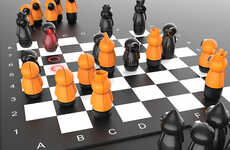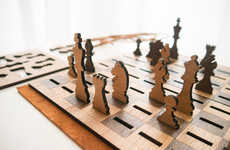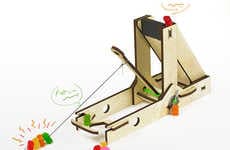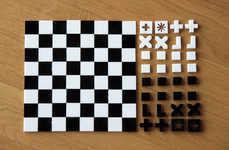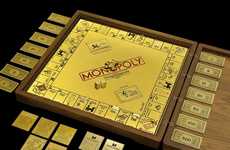
The Duncan McKean Chess Set Ensures that Everyone Can Play
Senduran Bhakthakumaran — April 18, 2012 — Unique
References: duncanmckean & yankodesign
One can now enjoy a game of chess with virtually anybody with the Duncan McKean chess set that is built to aid the blind, the partially sighted and the full-sighted. This board deviates away from the common chess pieces and turns them into cubes with markings and magnetic appeal that keeps the pieces in place. These features also help players know how the game is progressing.
The white pieces are made of matte steel and the black pieces are made of hardwood so that players can identify friend from foe just by touching them. The value of each piece is determined through its weight; players will know where their pieces are by how faithfully they stick to the magnetized squares. This is a revolutionary way in which the blind and partially sighted have been re-included in ancient games passed down for generations.
The white pieces are made of matte steel and the black pieces are made of hardwood so that players can identify friend from foe just by touching them. The value of each piece is determined through its weight; players will know where their pieces are by how faithfully they stick to the magnetized squares. This is a revolutionary way in which the blind and partially sighted have been re-included in ancient games passed down for generations.
Trend Themes
1. Inclusive Gaming - The development of blind-friendly board games opens up opportunities for inclusive gaming experiences, catering to players with visual impairments.
2. Adaptive Design - The use of magnetic and tactile elements in board game design presents opportunities for adaptive design in other industries such as toys and educational tools.
3. Accessible Recreation - Creating recreational activities that cater to individuals with disabilities, such as blind-friendly board games, can lead to increased accessibility and engagement in the leisure industry.
Industry Implications
1. Gaming - The gaming industry can capitalize on the trend of inclusive gaming by developing more blind-friendly board games and digital adaptations.
2. Design - The design industry can explore adaptive design principles to create products that cater to a wider range of abilities, using elements like magnetic and tactile features.
3. Leisure - The leisure industry can incorporate accessible recreation options, including blind-friendly board games, to ensure that individuals with disabilities can enjoy inclusive recreational activities.
2.4
Score
Popularity
Activity
Freshness


